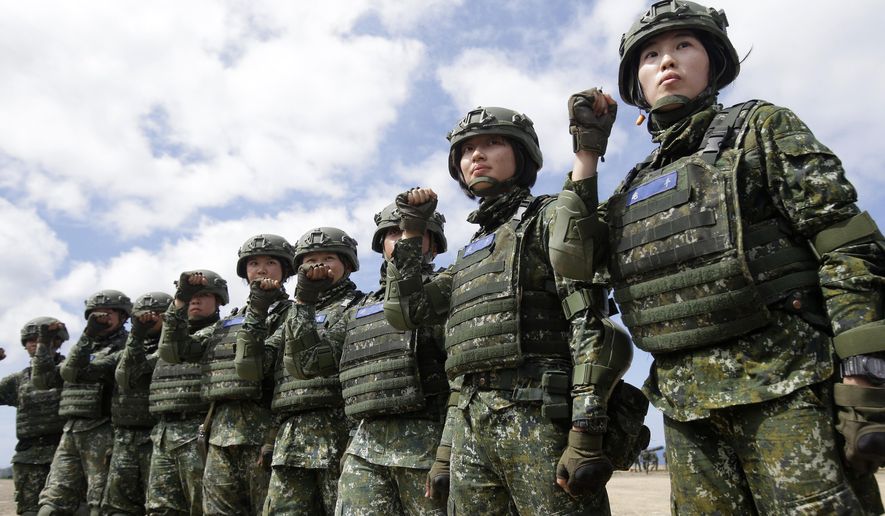The Trump administration is moving forward with the sale of several advanced weapons to Taiwan after it notified Congress of the potential sale and is awaiting approval.
The move, confirmed Monday, quickly received pushback from China, which threatened retaliation and argued that the sale will harm its sovereignty and national security interests.
Chinese foreign ministry spokesperson Zhao Lijian told reporters that “China will make a legitimate and necessary response according to how the situation develops,” according to Reuters, which was first to report the sale.
The publication cited three sources who had confirmed that leaders of the House and Senate Foreign Relations committees were notified of the intended sale by the State Department.
The lawmakers received informal notifications to sell a Lockheed Martin-made High Mobility Artillery Rocket System, Boeing-made long-range air-to-ground missiles and external sensor pods for the F-16 fighter jet to Taiwan.
Weapons sales must be authorized by the congressional panel before they can be finalized.
Congress is also expected to be notified of several additional weapons sales to Taiwan including aerial drones, land-based Harpoon anti-ship missiles and underwater mines, but a State Department spokesperson told Reuters that the U.S. “does not confirm or comment on proposed defense sales or transfers until they are formally notified to Congress.”
If the sale is authorized by the department and Congress, it would be the first drone sale under the Trump administration’s plan to sell more of the unmanned aerial vehicles (UAVs), citing a reinterpretation of the Missile Technology Control Regime, an informal missile proliferation agreement between 35 nations designed to limit the spread of weapons.
Earlier this year, the administration said it was relaxing rules governing the export of armed drones, making it easier for American companies to sell the military drones in a bid to compete with China’s growing foothold in the market.
Under the change, the sale of armed drones with a “maximum airspeed” of “less than 800 kilometers per hour” can be authorized. The new standard means that American drones such as the MQ-9 Reaper can now be sold to allies and partners much more easily.
Although the U.S. does not have formal, diplomatic ties with Taiwan, an increasing number of lawmakers have backed recent moves to show support for the island in a rebuke of Beijing.
The decision to sell advanced weapons to Taiwan marks a particularly provocative advance in the eyes of China, which is expected to be angered by the purchase.
The sale is the latest step in a sharp escalation of tensions between the U.S. and China, which has included the shuttering of diplomatic consulates, trade tariffs, the expulsion of journalists and U.S. sanctions over Chinese policies in Hong Kong and Xinjiang province.
• Lauren Toms can be reached at lmeier@washingtontimes.com.




Please read our comment policy before commenting.